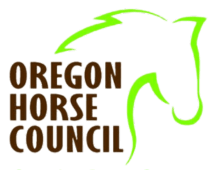Owners should try to avoid these pitfalls when running horse boarding businesses.
1. Drafting Their Own Boarding Contracts and Liability Releases
When it comes to drafting contracts and liability releases, boarding facilities seem to think they can do a fine job by borrowing someone else’s or cobbling together their own from pieces they find on the internet. The problem is unlike, say, do-it-yourself electrical wiring, the consequences of do-it-yourself legal work are not always immediately apparent. Instead, contracts are like life rafts — you don’t realize they have holes until you need to use them, and then, it’s way too late! The boarding facility that drafted its own contracts won’t realize its liability release is woefully inadequate until it gets sued. Or, a boarder owes the stable $3,000 in back board on a worthless horse, and the stable discovers to its extreme dismay that its contract doesn’t allow it to sell the horse or give it away, so it must rely on the time-consuming and expensive state lien foreclosure process.
Other reasons drafting your own contract is a bad idea.
Why not get a boarding contract forms package from Equine Legal Solutions instead? For a reasonable price, you can rest easy knowing your contract is enforceable, and you can benefit from other people’s experiences without making your own costly mistakes. You also don’t have to worry about whether your contract is up to date — ELS sends you the updates automatically and for free!
2. Being Too Nice
As a group, horse people are nice, trusting folks. So, when a boarder gets behind on board payments, breaks the barn rules or is just downright irritating, the facility manager tends to give that boarder a second chance. And a third chance. And a fourth chance. The longer a boarding stable waits to evict a problem boarder, the bigger the problem will become, and the harder it will be to get rid of them.
3. Letting Late Payments Get Out of Control
We hear from a LOT of boarding stables that want to know what to do with a boarder who is past due. Oftentimes, the boarder owes thousands of dollars. Why wait months to evict a boarder who isn’t paying? Every day a boarder doesn’t pay is a day the boarding stable feeds someone else’s horse for free AND loses the opportunity to fill that horse’s stall with a paying boarder.
4. Being Uninsured or Underinsured
Insurance is not just for pessimists! Boarding facilities of all sizes need commercial liability insurance and care, custody and control insurance. They must also insure their buildings and property against fire and other damage and insure their vehicles. For more information, see Equine Legal Solutions’ equine insurance buying guide.
5. Letting Boarders Work Off Board
With (very) rare exceptions, allowing boarders to work off their board just flat out doesn’t work. Most of the time, the boarder doesn’t take their obligations seriously, isn’t reliable and/or doesn’t do the job to the facility’s standards. If the boarder is a teenager, double the probability it won’t work.

Rachel Kosmal McCart is a lifelong horsewoman and the founder of Equine Legal Solutions, PC, an equine law firm based in the Portland, Oregon area. Rachel is a member of the New York, California, Oregon and Washington State bars and is admitted to practice before the U.S. District Court for the District of Oregon and the U.S. District Court for the Central District of California. Rachel currently competes in three-day eventing.

